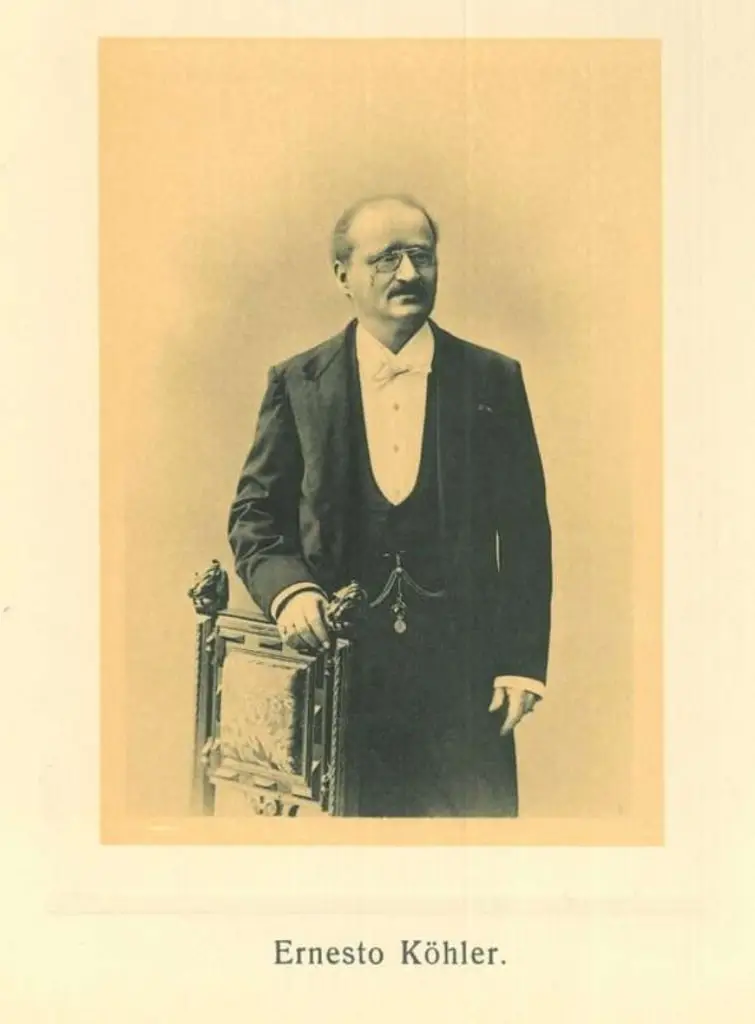
Birthday of Ernesto Köhler, flutist, composer, and pedagogue (1849–1907)
Ernesto Köhler (1849–1907) was a renowned Italian flutist, composer, and pedagogue, celebrated for his significant contributions to flute technique, performance, and repertoire.
Ernesto Köhler was a highly influential flutist, composer, and pedagogue of the late 19th and early 20th centuries. Born in Modena, Italy, he later moved to Russia, where he spent a significant portion of his career at the Imperial Opera in St. Petersburg. Throughout his life, Köhler’s dedication to flute performance and composition made him a pivotal figure in shaping flute technique and repertoire.
Technique and Contributions to Flute Pedagogy
Köhler was known not only for his virtuosic performance skills but also for his deep understanding of the technical requirements of the flute. He had many students and was mindful of the needs of flutists at varying skill levels. As a composer and teacher, Köhler sought to balance technical challenge with musicality. His theoretical and practical flute school, which was adopted by several European conservatories, laid a foundation for flute education and remains influential in the development of modern flute technique.
Köhler’s contribution to pedagogy extends beyond his teaching; his flute studies, duets, and exercises were designed to progressively build technical proficiency. His works continue to be used in flute teaching around the world, assisting students in mastering tone, articulation, and musical expression.
Music for Intermediate and Virtuoso Performers
Köhler’s compositions span a broad range of difficulty, catering to both intermediate players and virtuosos. For medium-level performers, he composed numerous accessible pieces that are both enjoyable to play and musically fulfilling. For advanced players, Köhler created technically demanding works that showcased the full expressive power and range of the flute. His concert solos, such as Schwalbenflug, Hirten Idylle, and Papillon, were designed to highlight the abilities of virtuosos and remain staples in the repertoire of concert flutists.
Prolific Composer: Chamber Music and Larger Works
Köhler’s prolific output includes over 100 compositions, featuring a wide array of genres and instrumentations. His works for flute include not only studies and etudes but also chamber music, such as duets for two flutes, pieces for two flutes and piano, and salon pieces with piano accompaniment. These pieces are known for their charm, melodic inventiveness, and accessibility to a wide range of players.
Notably, Köhler also composed larger works such as his Concerto Op. 97, which have been performed by leading flutists across Europe, America, and Australia. These works have earned a permanent place in the flute repertoire and continue to be performed in concert settings.
Köhler’s Contributions Beyond the Flute
In addition to his contributions to flute music, Köhler composed an opera titled Ben Achmed, which premiered successfully in St. Petersburg in 1893. He also wrote several ballets, one of which, Clorinda, gained considerable popularity at the Imperial Theatre in St. Petersburg. These compositions showcased his versatility as a composer, with his works being performed in prominent venues across Europe.
Legacy and Final Years
Köhler’s career at the Imperial Opera spanned 35 years, during which he became a celebrated figure in the Russian music scene. His dedication to his craft was recognized during a celebration of his career in 1906, commemorating his contributions as a flutist and composer. In his later years, Köhler retired from active performance and planned to spend his remaining years in peace, but he passed away on May 17, 1907, in St. Petersburg.
Ernesto Köhler’s legacy endures through his extensive contributions to the flute repertoire, pedagogy, and performance. His works continue to inspire and challenge flutists worldwide, making him one of the most important figures in the history of flute music.
This event has passed.
Birthday of Ernesto Köhler

